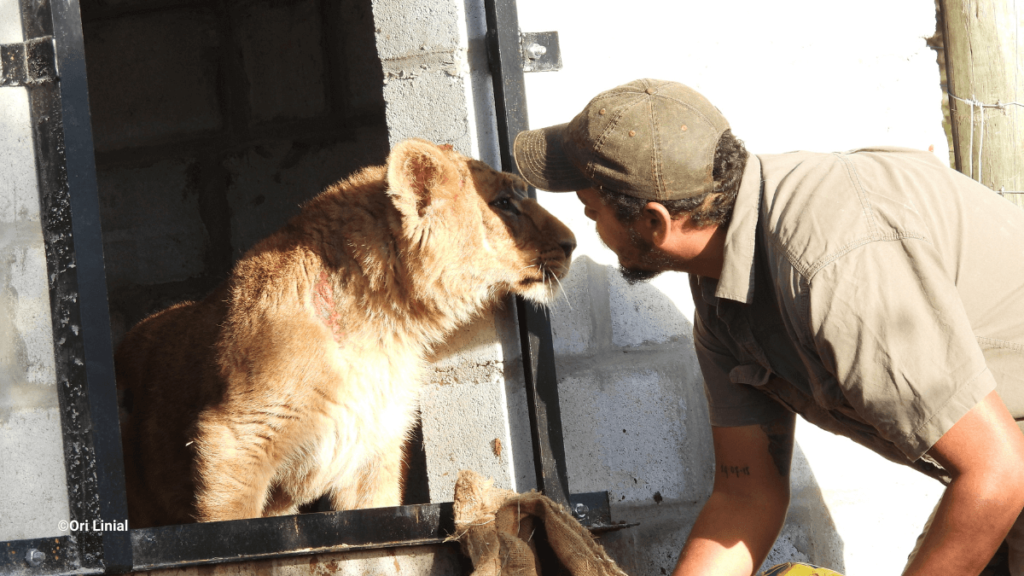Are you ready for a true story of wildlife crime, rangers and conservationists working together across thousands of kilometres, happy ending included? Then don’t miss our guest report by Ori Linial. He is Head of the National Wildlife Crime Prevention Unit at the Israel Nature and Parks Authority and uses the example of lion cub “Zion” to tell you how he and a team including ERF Vice President Ilan Yeger and IRF President Chris Galliers fight to protect wildlife.
A Roar for Redemption: The Tale of Zion’s Triumph
Brought to you by Ori Linial
“As rangers and nature conservationists, we are often faced with the harsh reality of wildlife trafficking, but every now and then, we are privileged to witness a tale of hope and resilience. This story we bring to you is just such a tale. A young lion cub, trafficked across borders and forced into captivity, found a new home in South Africa, proving once again that even in the face of adversity, hope persists.
In the early months of this year, social media platforms in Israel were flooded with video clips showcasing various wild animal cubs, some alarmingly up for sale. Amidst this disheartening footage emerged the story of a lion cub named “Abu Malek”.
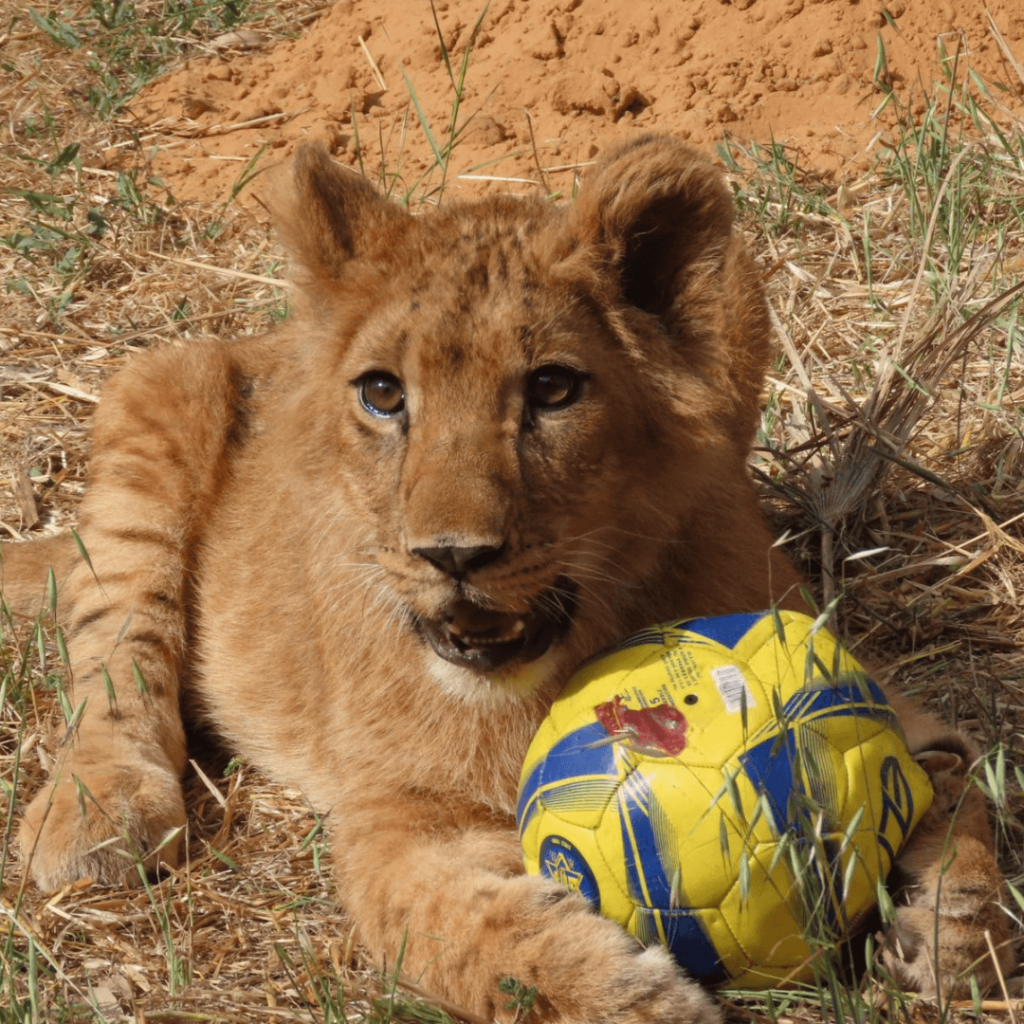
Abu Malek’s situation was particularly distressing; he was incredibly young and had become accustomed to humans, being kept in deplorable conditions and offered for sale. Law enforcement agencies such as the Israel Police Environmental Protection Department and the joint Border Police-Israel Nature and Parks Authority (INPA) Intelligence Unit confirmed that lions had indeed been smuggled into Israel.
Despite their best efforts, law enforcement initially struggled to locate the animals. However, in February, Border Police intelligence officers managed to find Abu Malek held captive in central Israel. The cub was promptly taken into custody and handed over to the rangers of the Nature and Parks Authority. It is suspected that Abu Malek was trafficked from Jordan, part of a growing trend of wildlife trafficking that has sadly increased in recent years.
“The lion cub had been cruelly taken from his mother at a critical age. His future looked bleak, but his new caretakers were determined to change that.“
Once in the safe hands of the INPA, the cub was transported to the veterinary hospital at Bet Dagan and the INPA’s & Tel Aviv-Ramat Gan Zoological Center, where world-renowned veterinarians examined the young lion. From there, he was moved into quarantine for about a month, undergoing a series of medical tests and treatments.
Abu Malek, just about three months old at the time, had been cruelly taken from his mother and his pride at a critical age, where he would have needed rich nutrition, activity, and socialization. As a result, he showed a number of problems typical to animals held improperly in captivity. His future looked bleak, but his new caregivers were determined to change that.
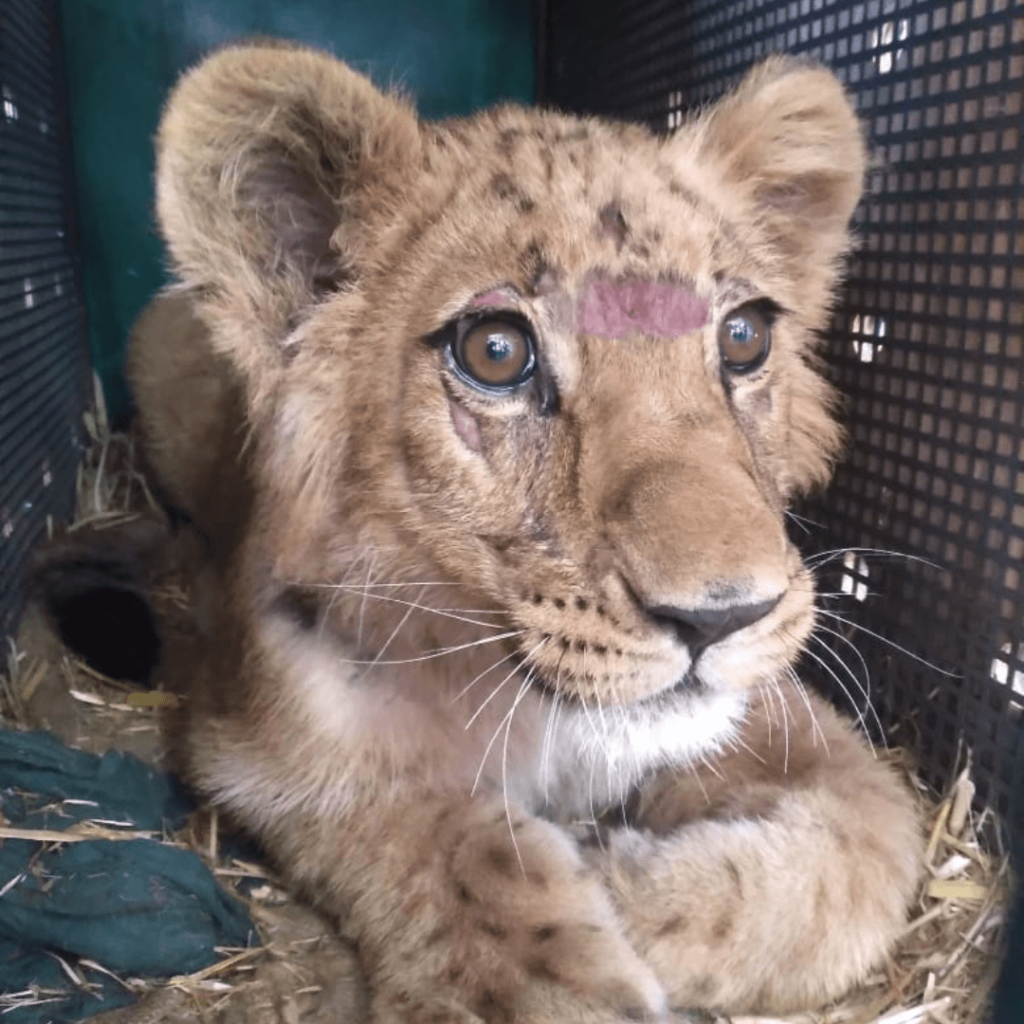
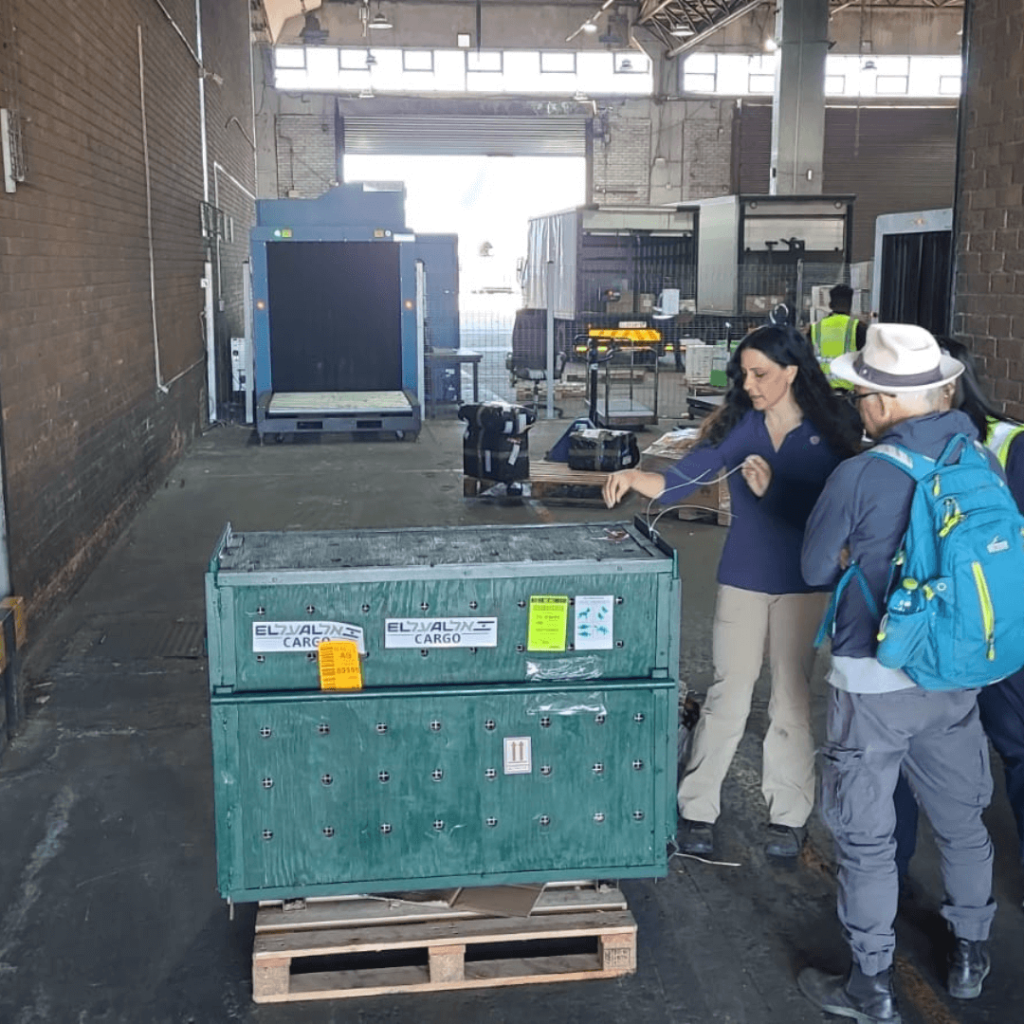
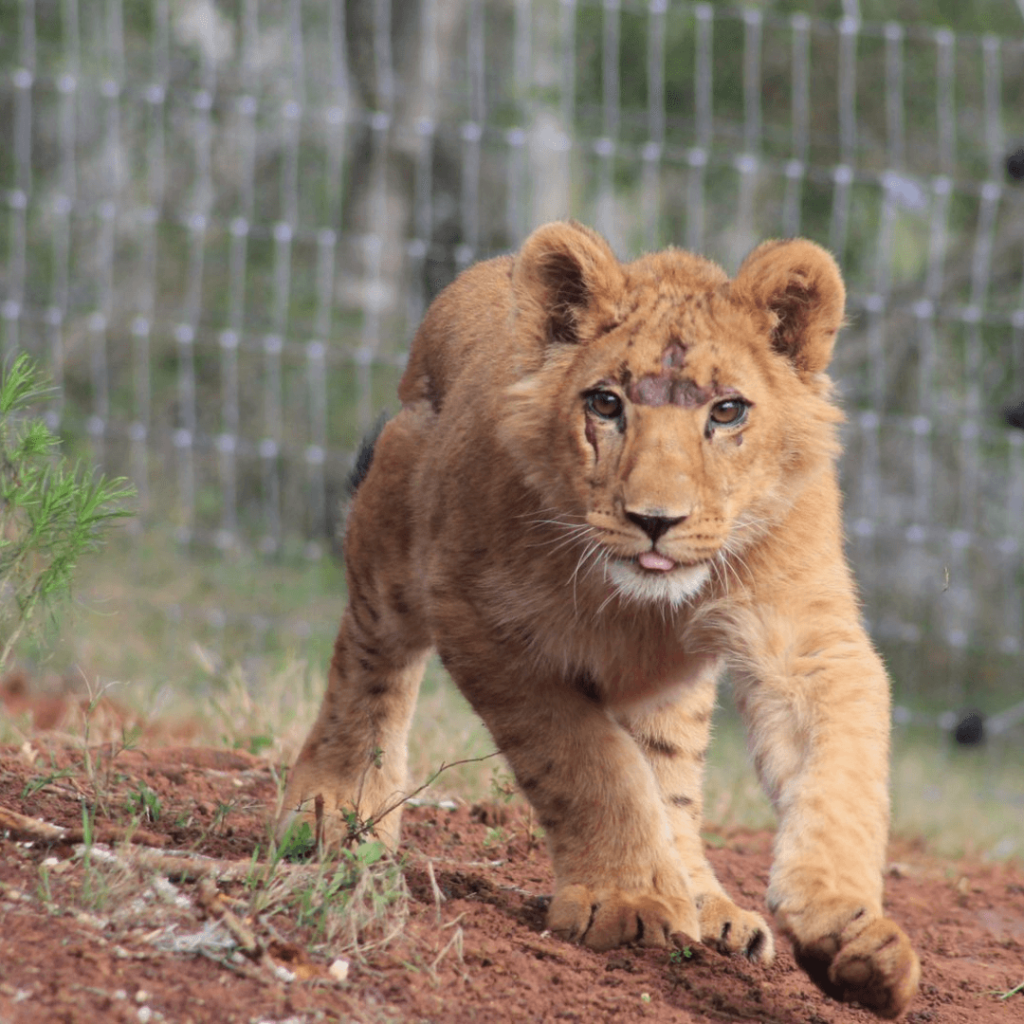
While the cub was in quarantine, an extensive search was undertaken to find a suitable facility that could adopt him. The facility needed to be capable of maintaining him under good conditions, introducing him to animals of his species, and providing large enclosures in natural surroundings. Offers poured in from nature protection groups and individuals eager to help.
The INPA team meticulously reviewed all the proposals and prioritized facilities in South Africa, the lion’s home range. Several offers were rejected due to high costs, lengthy quarantines, unsuitable veterinary conditions or capacity issues.
“ERF Vice President Ilan Yeger and IRF President Chris Galliers tirelessly worked together to find the most suitable sanctuary for the young lion.”
Eventually, a suitable home was found in South Africa – a country with a number of facilities that hold wild animals. Some of these are private reserves serving tourists, some even for hunting, and others are sanctuaries where animals are genuinely rehabilitated. It was crucial that the chosen facility met the proper standards.
As the cub prepared for his new journey, his caretakers decided to rename him “Zion” – a symbolic name given to him by the dedicated handlers at the Safari who cared for him during his time in Israel. The name represented hope for the cub and the country from which he was being sent to sanctuary.
Ori Linial, Head of the National Wildlife Crime Prevention Unit at the INPA, shared that they decided to work with a sanctuary where another cub of about the same age was expected to arrive. This decision was made in the hope of fostering a social life for Zion within his species.
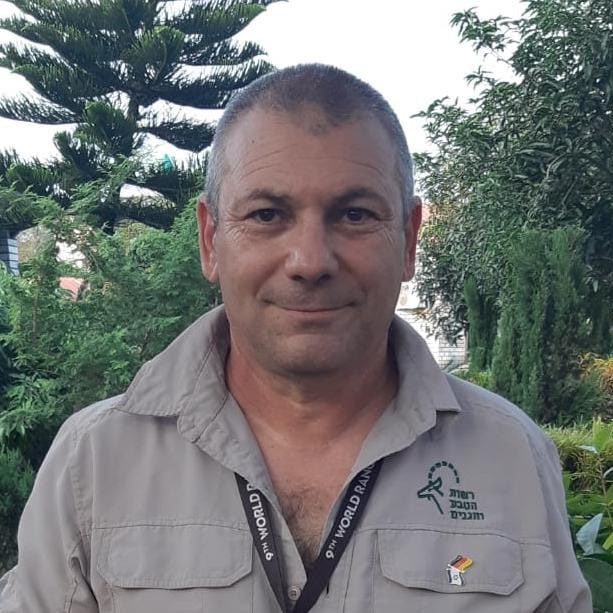
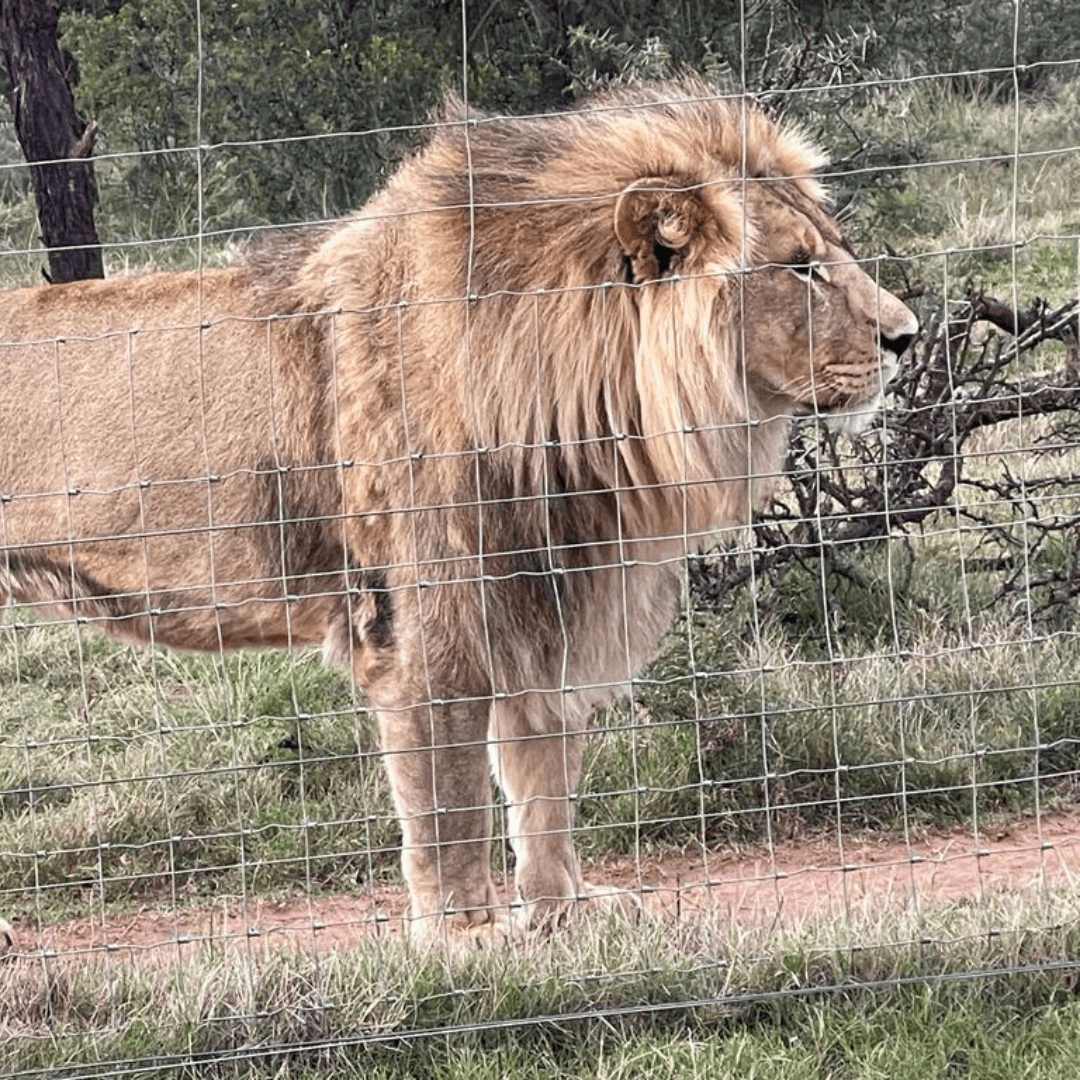
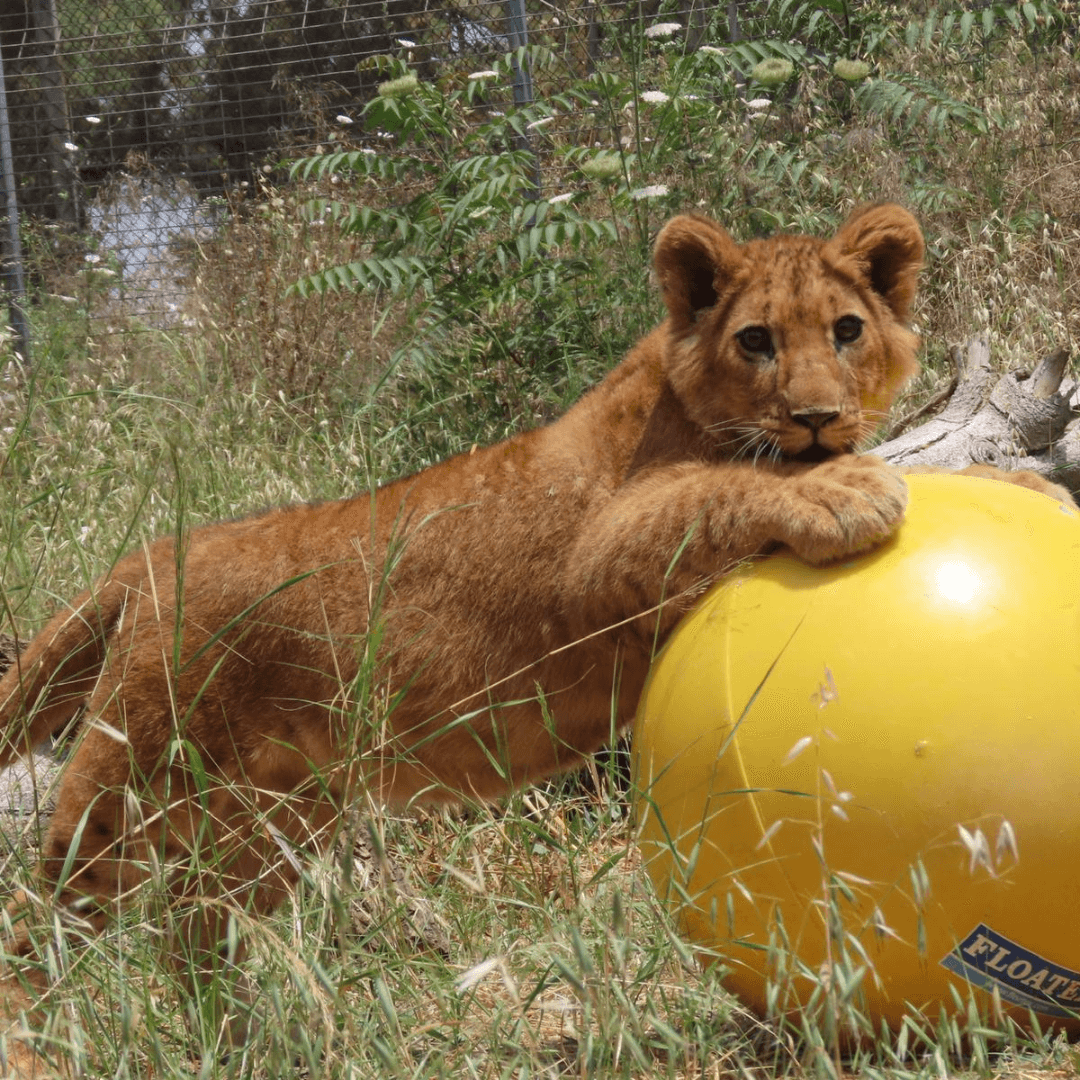
Ilan Yeger, ERF Vice President, used his international connections to IRF President Chris Galliers to ensure that a sanctuary with conditions fully suitable and conspecifics is found for “Zion”. Listen to IRF President Chris Galliers talking about the cooperation and illegal wildlife trade:
Ilan Yeger, head of operations and anti-poaching at the INPA, played a key role in the process. Using his connections through his role as Vice-President of the European Ranger Federation and representative in the International Ranger Federation, Ilan reached out to Chris Galliers, President of the International Ranger Federation and a respected nature conservationist in South Africa. Through a series of digital communications, they worked tirelessly to determine the most suitable sanctuary for Zion.
Their combined efforts led them to the Warriors of Wildlife Ethical Wild Animal Sanctuary at Simbonga in South Africa. After thorough inspection and assurance that the sanctuary would provide the cub with suitable conditions and not use him for breeding, trafficking, hunting, or amusement, the decision was made. At the end of May, Zion moved to his new residence.
“Well done to Ori and the team. They did a great job and moved very quickly to find a solution to that situation, which must be commended. Really, really good job!”
Chris Galliers, President of the International Ranger Federation
We are all filled with hope that Zion will be rehabilitated and will have a better life than being a “Tik Tok Star”. His journey serves as a stark reminder of the ongoing battle against wildlife trafficking and the importance of our collective efforts as rangers and nature conservationists.
The story of Zion is a testament to the resilience of nature and the tireless efforts of those who strive to protect it. His tale is not just about one lion cub; it represents our ongoing commitment to wildlife conservation and the promotion of ethical treatment of all creatures. As rangers, we hold the front line in the fight against wildlife trafficking, and it is stories like Zion’s that remind us why our work is so crucial.
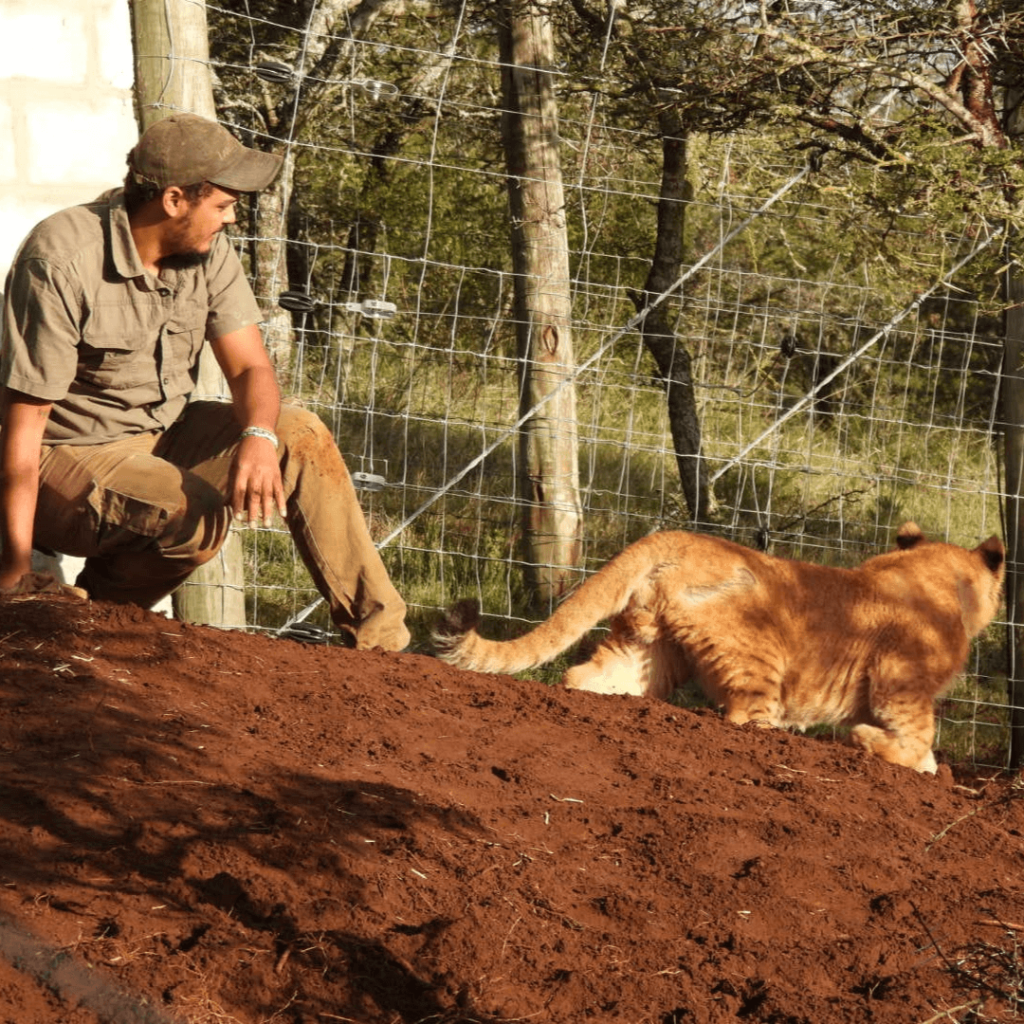
World Ranger Day, celebrated every year at 31 July, shows how many rangers worldwide put their lives at risk in the line of duty. Find out here from IRF President Chris Galliers what risk the illegal wildlife trade poses to rangers in this context:
Zion’s journey may have begun with hardship, but through the combined efforts of dedicated individuals and organizations, his story has become one of hope and triumph. We celebrate Zion’s new life in South Africa and continue our mission to combat wildlife trafficking and protect the natural world, one animal at a time.
As we reflect on Zion’s story, we must remember that every creature has a vital role to play in the complex tapestry of our ecosystems. We must remain steadfast in our mission, so that stories of hope and redemption become the rule, rather than the exception. Together, we can ensure a brighter future for all our planet’s inhabitants.”
© All photos related to the lion cub: Ori Linial
This content is sponsored by


